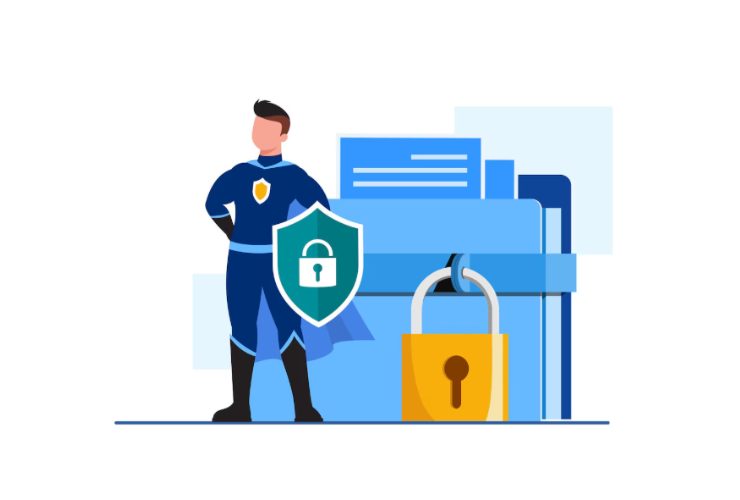Using an OpenCart store is an excellent opportunity to expand your outreach and grow your business — but with online sales comes the responsibility of securing your customers’ sensitive data. A healthy fear of hackers has kept many merchants from opening eCommerce businesses, and without proper safeguards for your OpenCart store, you could face everything from data breaches, financial losses, and reputational damage that may be difficult, if not impossible, to restore.
The cyber threat landscape is always changing so it is important to take action that can compromise the security of your store and reassure your customers that their data is safe.
1. Always Update OpenCart
Keeping your site up-to-date is also one of the simplest ways for intruders to gain access to your site. Use the latest version of OpenCart and regularly update your extensions and themes! Updates will patch known security issues, bug issues, and take steps to block new security threats before they have an opportunity to do damage.
2. Admin Credentials
There are general policy recommendations for making your store’s credentials stronger, for example, using unique usernames and strong passwords, and avoiding the use of the word admin y in your username (e.g. storeadmin) would be helpful to bot attacks. Use two-factor authentication (2FA) where possible. 2FA is an additional layer of security that makes it that much harder to break into someone’s account.
3. Change the Name of Your Admin Directory
Hackers tend to scan for the default /admin folder through which they will find your login page. If you rename this folder to something that doesn’t give away what it is, this will make it harder for attackers to search for and find your admin panel. You can also limit access to your admin to “trusted” IP address whenever possible.
4. Use HTTPS with an SSL Certificate
SSL encryption is a requirement for any online store that is serious about protecting their customers. An SSL certificate encrypts the data transmitted between your site and your customer — payment information, personal information and login credentials. Most hosting providers offer an SSL certificate free or for a nominal charge — always use HTTPS over every page of your store.
5. Create Regular Back Ups of Your Store
A good backup can save your business if something goes wrong. Back up the entire site and schedule automatic backups of your site and database regularly. Always securely store your backups (preferably off-site or in the cloud) and test the backups regularly to ensure it works when you need it to.
6. Ensure Proper File Permissions
Proper file permissions can help manage unauthorized access to important files and folders. Generally you want to use a file permission set for directories of 755 and 644 for files. Do not leave files that could potentially be sensitive files writable unless you actually need it to be writable, and try to remove, or at worst, disable any scripts or files that you do not require.
7. Install Trusted Security Extensions
The OpenCart extension marketplace is filled with security extensions — firewalls, IP blacklists, spam blockers, malware scanners, and so on. When using extensions, be sure to use trusted extensions that have been reviewed (and reviewed well) by other users and developers. Ensure you keep your extensions updated to minimize any vulnerabilities.
8. Monitor Store Activity
Keep an eye on for suspicious behavior. Make sure to review your site logs regularly for unusual login attempts or changes to your files by unauthorized users. Many security extensions provide a dashboard of activity on your store which can help get things back in order quickly.
9. Prevent Brute Force Attacks
There are a lot of fake hackers who try to gain access to admin panels by login in repeatedly and a lot of times by guessing passwords. You want to limit the failed login attempts and block IP addresses which make too many failed attempts. One final quick step is to add CAPTCHAs to login pages (this can help prevent automated bots from trying to break into the store).
10. Educate Your Users
Ultimately, your store security is only as strong as your store users. Make sure your users know about strong passwords, how to identify suspicious emails, and the best practices for security on the web. A stupid click by a user could risk the security to your entire store.
11. Select a Trustworthy Hosting Provider
Good hosting is mandatory for a safe store. Be sure to choose a hosting provider with solid server protections like firewalls, DDoS protections, server updates and technical support that is familiar with OpenCart.
12. Security Audits
As your store increases, so does the risk. Conducting periodic security audits help find and fix vulnerabilities before attackers find them. Consider scheduling periodic scans or seek assistance from a professional who can assist in reviewing your store security configuration.
Keeping You Business Safe and Customers Confident
Being secure in online store space is not a “set it and forget it” activity. It is an on-going process. Following these practical tips, you can increase the defenses of your OpenCart store, address issues with your customer data and maintain your integrity.
If you need help securing your OpenCart, or need expertise to help maintain, set-up security or develop, we are here too help. We provide updates, backups, security extensions and much more so you can focus on growing your business and we will keep your business safe.
Contact Us Today













 Database Development
Database Development












































